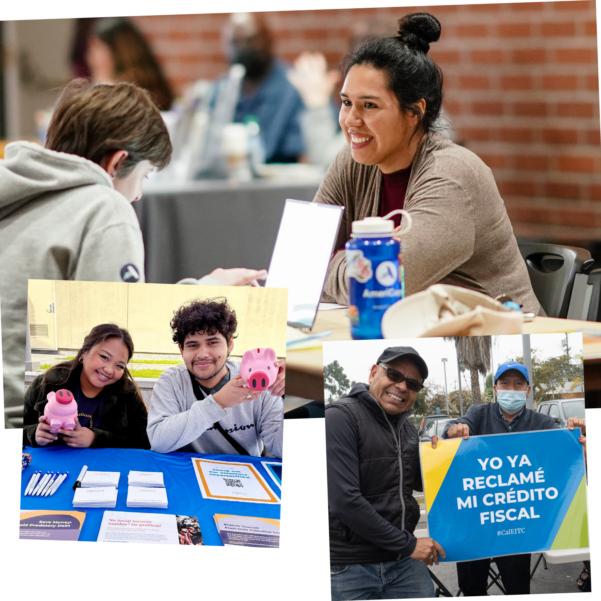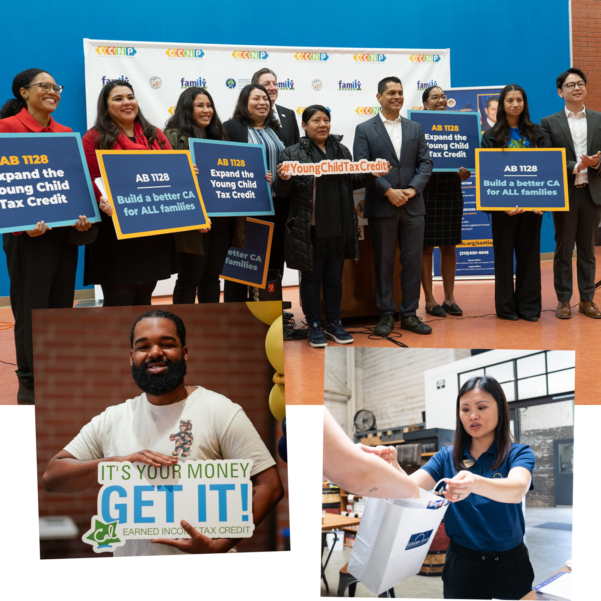How We Work
GSO is led by doers who educate, engage, and empower working families. Our groundbreaking, culturally relevant work in thirteen languages reaches millions of low-income Californians and connects them with the financial resources they need to survive and then thrive.
We get things done through grassroots advocacy and partnerships with community-based organizations, and what we learn from this on-the-ground work informs our policy advocacy. GSO began with a legislative victory led by and for low-income workers and families. Since then, we have fought to expand access to the CalEITC, federal EITC, higher wage jobs, and other anti-poverty solutions. But we know more needs to change.

Our work is along two complementary tracks — getting people the help they need right now and building the infrastructure to change attitudes toward people living in poverty and the policies that keep them there. That’s what makes GSO unique.
GSO leads comprehensive statewide campaigns to help families access public benefits, achieve financial stability and plan for the future through programs that uplift low-income Californians. What works in Oakland doesn’t always work in Salinas. That’s why GSO has partnerships with 40+ community-based organizations across the state led by trusted community messengers.
Our community of working families is leading the charge for public policies that end poverty in California. GSO won’t stop pushing for systemic change until everyone can easily access the resources they need to meet their basic needs and transform their lives with financial stability.

